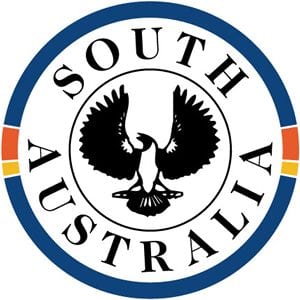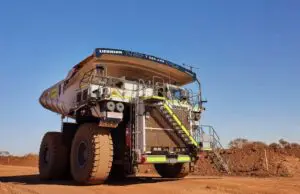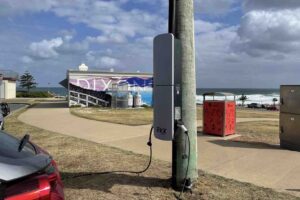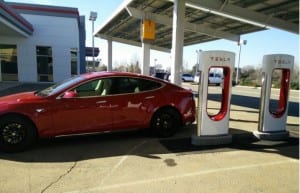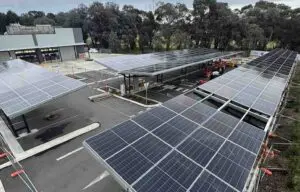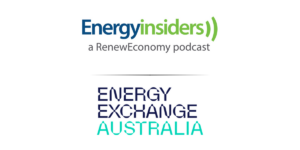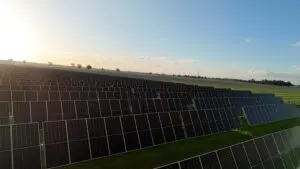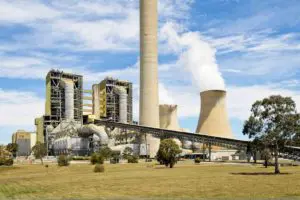PRESS RELEASE
Hydrogen fuel cell cars will take to the streets of Adelaide today in a South Australian first.
The vehicles – a Toyota Mirai and a Hyundai iX35 FCV – use hydrogen as a fuel source and emit water rather than carbon or noxious emissions.
They do not produce any engine noise but drive and perform like conventional vehicles.
Toyota and Hyundai are the first car manufacturers to bring hydrogen fuel cell cars to the country and they have teamed up to promote the technology.
The State Government and Adelaide City Council are jointly supporting hydrogen utility company H2U to undertake a feasibility study into establishing South Australia’s first hydrogen refuelling station at Mile End.
This is part of H2U’s plans to establish an initial network of 14 stations nationally.
The study will look at opportunities for fuel cell powered vehicles in the council’s services and the State bus fleets, with hydrogen produced on-site from renewable electricity using electrolysis technology.
Background
The Low Carbon Economy Unit in the Department of the Premier and Cabinet has worked with both companies to bring the cars to Adelaide for the first time.
Fuel cell cars offer zero carbon motoring when renewable hydrogen is used which aligns with the State Government’s and Adelaide City Council’s shared ambition to establish Adelaide as the world’s first carbon neutral city.
Sales of hydrogen cars, buses and trucks are rising overseas, triggering the construction of hydrogen refuelling stations, but it is still early days in Australia.
Hyundai has built a small hydrogen refuelling station in Sydney and Toyota has built a mobile refuelling unit that can be transported around the country.
Toyota and Hyundai are also convening a meeting of hydrogen mobility industry stakeholders at the Tonsley redevelopment on Thursday.
Quotes attributable to Assistant Minister to the Treasurer Chris Picton
South Australia is pursuing a range of initiatives to encourage the adoption of zero emission vehicles.
We are trailing low emission buses including two locally manufactured electric buses and purchasing low emission cars for the State Government fleet.
These are important initiatives in our goal to make Adelaide the world’s first carbon neutral city and attracting this type of technology is draws attention to our efforts.
Aside from encouraging the uptake of these technologies other measures such as the removal of taxation barriers to electric and fuel cell vehicles, in particular the luxury car tax.
Today’s test drive builds on our success in encouraging world-leading automotive technologies such as autonomous vehicles, and complements our significant investment in public transport, cycling and walking.
Quotes attributable to Lord Mayor Martin Haese
Currently 35 per cent of carbon emissions in the City of Adelaide come from transport, with over 90 per cent of those from private vehicles.
Using hydrogen generated from renewable energy as a fuel source will help reduce emissions and improve the air quality of the city.
Vehicles fuelled by hydrogen are quieter too, helping to make the city more pleasant and liveable by reducing background traffic noise.
Embracing new technology is not only good for the environment, but will lead to better outcomes for residents, the economy and local business as we move toward our goal of becoming the world’s first carbon neutral city.
Quotes attributable to H2U CEO Attilio Pigneri
The H2U team and its project partners are very excited at the opportunity to work with the City and the State Government to investigate establishment of a renewable hydrogen refuelling station in the Mile End precinct.
Fuel Cell Vehicles and Renewable Hydrogen bring unique opportunities to deliver zero emission solutions for heavy use commercial applications such as Taxi, Bus Transport and Waste Collection Services.
The close collaboration established between the City and the South Australian Government creates the perfect ecosystem for this initiative and we look forward to make our contribution to the goal of a Carbon Neutral Adelaide.
Media contact: Callie Bryson 0478 346 495

